VVMI HISTORY
1979
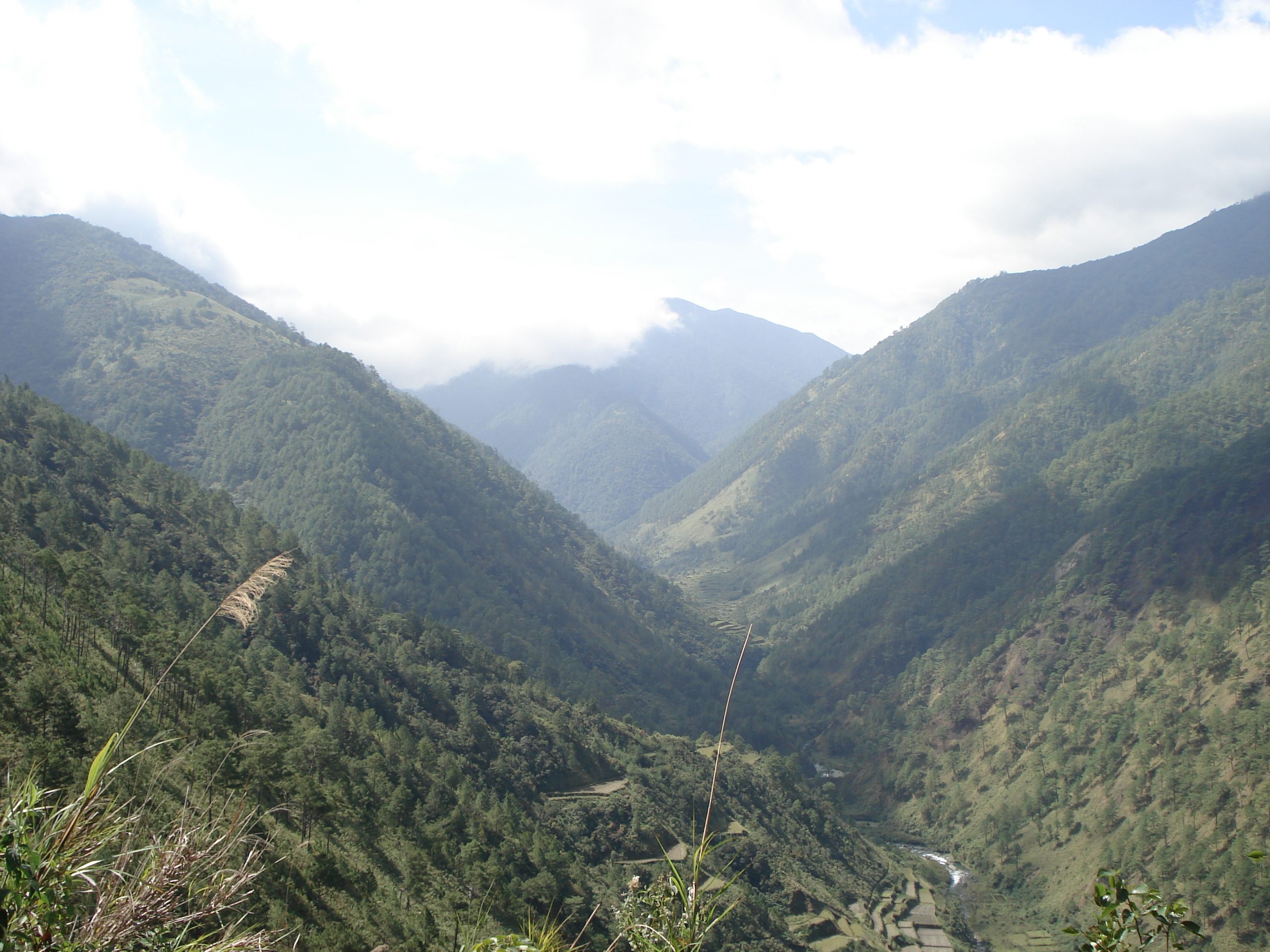
The Lutheran (LCMS) missionaries who would eventually become the founders of VVMI were sent to serve among the Kankanaey people in northern Luzon, Philippines. Their first years were spent learning the language and the culture and doing some church planting.
1982
When the LCMS pulled out of the Philippines, the founders joined Wycliffe Bible Translators, with the primary purpose of distributing and promoting the Kankanaey Scriptures. Consumer video technology was just becoming available, and they discovered it is a great tool for not only communicating to oral culture people but also for building interest in translated Scripture.
1985
A young Kankanaey believer became a full-time distribution/promotion partner. The strategy was specifically to use videos to get the Kankanaey people excited about the Kankanaey Scriptures. Initially, they pioneered the dubbing of the New Media Bible videos (professional productions of LUKE and GENESIS, similar to “The Jesus Film”) into the Kankanaey language and showed them in hundreds of villages.
1990
The first original video was produced and shown at the dedication of the Kankanaey New Testament. Twenty thousand people attended this dedication that was held over two weekends, and all 7,000 printed Kankanaey New Testaments were either sold or put on consignment within a month!
1992
After seeing the success and understanding the potential of vernacular video ministry, Vernacular Video Ministry (VVM) became a recognized non-profit organization in the Philippines.
1994
The founder began challenging his personal supporters to “not just throw money at missions” but to also see the ministry in the field up close and personally. This began the practice of personalized short-term trips to connect believers in the
1996
the founders started working together with Overseas Missionary Fellowship (OMF) missionaries in the Philippines, and Manobo Media Ministry (MMM) was started. MMM later became Vernacular Media Network (VMN). The ministry primarily proclaimed the Gospel of the Lord Jesus Christ through video and other media to the indigenous people of Mindanao.
1999
Vernacular Video Mission International (VVMI) was incorporated in the United States in order to better partner with the national media organizations in the Philippines. The VVMI Board of Directors, however, strongly believed that equipping and training ethnic nationals to proclaim the Gospel through video and other media in their common language (VVMI mission statement) is a great idea, not only in the Philippines but potentially almost anywhere in the world.
2004
The VVMI founders started transitioning to other ministry in Asia beyond the Philippines. VVMI Board member, Colin Edwards, sensing the call to step into the gap, became the “Executive Director in Training.”
2006
The pre-VVMI association with VMN in the Philippines was put on hold pending organizational changes being made by VMN and OMF. Up to that time, VMN had completed 18 original vernacular video productions.
2007

Colin Edwards became the full-time Executive Director of VVMI. At that time, VVMI re-emphasized the importance of its ministry partners having vernacular Scriptures in addition to film showing evangelism to assist indigenous churches with disciple making. VVMI’s ministry partner, VVM, had by that time completed 35 original vernacular video productions.
2008

VVMI further expanded by beginning a new partnership with Viña Association, a national ministry based in Guatemala. Viña was helping provide vernacular media for minority language groups in Central America and Mexico, and was also producing a much- needed children’s ministry video and lesson resource called Deditos – finger “actors” that help tell Bible stories.
2008
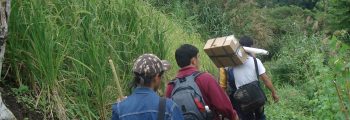
That same year, the VVM “Church Mobilization Initiative (CMI)” started, and it revolutionized video ministry in the Philippines. Instead of solitary evangelists showing films at churches, groups of churches in a language group or region would organize, pray, share equipment, and work together to communicate the Gospel and make disciples. In connection with this rapidly expanding, organized, and systematic evangelism by church groups, new Bible studies and church plants resulted. VVM and VVMI recognized the need to help provide vernacular Scriptures in order for these churches to effectively make disciples, resulting in the ongoing print and audio Bible partnership projects.
2009
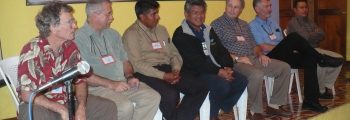
VVMI rejoiced in the prospect of continued growth and partnership in spreading the Gospel through video and other media. An official partnership understanding was reached to re-institute work with VMN in the southern Philippines.
VVM-CMI Director Darwin Bayani and Colin Edwards were invited to speak at the first- ever Americas area Christian media conference hosted by Viña in Guatemala. This event linked VVMI ministry partners across the Pacific, began the sharing of Viña’s Deditos in the Philippines, and introduced VVMI to future ministry partner ILMAV (now AE-ILMAV) based in Peru.
2010
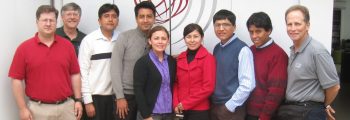
A noteworthy year for VVMI’s Philippines partners’ attendance and mutual edification at
the first-ever joint video production training seminar held in Baguio City. Representatives of both VVM-CMI and VMN came together for a week of hands-on learning with a volunteer professional videographer from the States.
The year also saw a preliminary investigation and visit by VVMI representatives to a potential partner ministry in Peru (ILMAV) that would eventually expand VVMI’s involvement into South America.
In the fall, Viña Director Jose’ Abel de la Cruz visited several VVMI supporting churches for the first time with VVMI’s Executive Director.
2011

2011 saw an increase to 10 “mobilized” church groups involved in the VVM-CMI. Print Bible requests jumped to over 25,000 copies (one copy per family unit). That year also saw the first-ever VVMI short-term trip team visit to Viña. The trip precipitated 5 Kaqchikel language churches allowing Deditos to be shown at their facilities for the first time ever within that people group, which in turn opened further doors for Viña to share Deditos in Guatemala.
2012
VVMI began a partnership with ILMAV (Impacting Minority Languages with Audiovisual Media) based in Lima, Peru, South America.
The first VVMI audio Bible project was completed in cooperation with Audio Scripture Ministry (ASM) based in Holland, MI: 200 MegaVoice Envoy units in three major trade languages were supplied to VMN in the Philippines.
It was also a very sad year in VVMI’s history. Board Director Michael Bratlie, a veteran pilot, disappeared along with his plane while on a test flight over northern Minnesota to check an overhauled engine. Neither Mike nor his plane were ever found.
2013
The number of VVM-CMI teams in the Philippines increased to 17. Bible demand among VVM-CMI groups rose to 40,000 copies (one per family unit), but VVMI was only able to provide about 8% of the need.
VVMI started a “strategic alliance” with ASM that supplied more digital audio players to VVMI’s partners in the Philippines.
VVMI’s second partnership project with ILMAV began in 2013. It was a joint operation between Viña, ILMAV, VVMI, FDPM/AGA (a Christian media organization in Colombia), and the Colombian Church. This project helped get the first Deditos episode in Colombia dubbed into the indigenous minority language known as the Nasa Yuwe. The project was an inspiration and catalyst for other Deditos work done thereafter in Colombia.
On a sad note, Board Chairman Dr. James Neff went to be with the Lord in August following a battle with cancer.
2014
The VVMI Board recognized the need to help supply the VVM-CMI not only print Bibles but also audio Scriptures since many people cannot read either due to blindness or illiteracy, and the VVMI “Audio Bible Fund” became a standing project.
VVM-CMI Bible demand increased to 70,000 copies, but less than 6,000 copies were supplied. However, 470 audio Bible units are also sent to the field. Two VVMI teams visited the Philippines, and one of them provided Bible training for pastors and teachers.
VVMI and ILMAV jump-started Deditos work among five language groups in the Huánuco area of Peru. This effort later blossomed into much more ministry and Deditos dubbing by local churches without outside assistance.
October saw a tour to the USA by the directors of Viña and ILMAV and their spouses. This
provided not only face-to-face visits for people in the USA with VVMI partners, but also
helped expand the relationship
2015
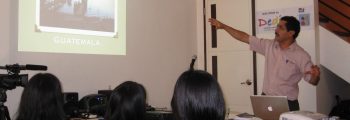
VVMI began a partnership with OC (One Challenge) Africa following 3 years of investigation and prayer.
In December, VVMI sponsored a joint Deditos training event in the Philippines that included both VVM-CMI and VMN teams. Viña Director José Abel de la Cruz and his wife went to the Philippines and led the training.
2016
VVMI assisted ILMAV to provide cell phone app training as a means to share Bible stories, Christian songs, and teaching via “smart phones.”
In the Philippines, the dubbing of Deditos into several major trade languages and some ethnic minority languages took off following the 2015 training session.
VVMI was praising God in 2017 for an outpouring of donations that allowed supplying critical equipment to VVM-CMI, ILMAV, and OC Africa.
Mobilized groups with the VVM-CMI grew to 25; Bible demand rose to over 200,000 copies as new Bible study groups and church plants started. However, when VVMI could assist with less than 3% of the need, Filipino Christians became creative in their sharing of the Word. In at least one instance, a group of Christians on one island physically divided the few Bibles they had by books (of the Bible) so several families could eventually share a single copy of the whole Bible between themselves.
2018
2018 saw the first video production system and training project delivered to OC Africa.
Print Bible demand in the Philippines grew to over half a million copies, fueled by new Bible study and church startups, and as a result of ministry among prisoners and in schools.
The number of language groups that dubbed and wanted to dub Deditos rose worldwide. VVMI helped fund some of those, including in English, along with more original episodes in Spanish.
VVMI began to be amazed at how rapidly God was growing His Church in its partner ministry areas. This growth also brought God-sized requests for additional resources. VVMI, therefore, began through prayer to more earnestly seek His supply to meet the huge needs created by the spiritual hunger and rapid growth of the Church.
2019
VVMI’s Executive Director was privileged to attend the Romblomanon New Testament dedication and have a part in the subsequent “mobilizing” of churches in the Romblon Island group of the central Philippines. Ministry partners in the Philippines also expanded their work with prisoners, in schools, and with law enforcement officials. Bible demand subsequently continued to rise.
Ministry partner ILMAV officially changed its name to AE-ILMAV (in English, meaning Evangelical Association ILMAV) in order to better expand its ministry beyond Peru. God’s prompting of donors to support important partnership projects allowed VVMI to assist Viña with funding and planning critical upgrades to its production facility. This happened simultaneously as the global (and potential) impact of Deditos came to light.
2020
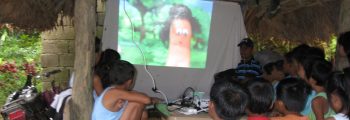
2020 brought the COVID-19 global pandemic and other stresses. While causing ministry to morph due to travel and meeting restrictions, the work did not cease. VVMI, its ministry partners, and local churches around the world were able to leverage digital means to continue sharing God’s truth via vernacular media.
Deditos became more sought-after than ever as it was shared not only via DVDs and flash drives, but also on websites and through online streaming by churches. Viña’s deditos.org site was established. It has the Deditos videos, lessons, and teacher resources in various languages available to watch or download.
God used audio Bible resources delivered to the Philippines early in the year (before the pandemic shutdowns) to provide encouragement, teaching, and to grow His Church in remote areas where previously unreached peoples and the emerging Church are listening.
A sad note for the year was the home-going of former VVMI Board Chairman Don Nemcek.
2021
2021 saw the continuation of the COVID pandemic, lockdowns and travel restrictions. However, none of this stopped God’s working. Hundreds of people in the Philippines were reported to have said they wanted to follow Jesus; then, received baptism, and got into Bible study as part of local church ministry.
People groups in South America came to AE-ILMAV asking for assistance in getting their vernacular Scriptures recorded into audio format, along with Deditos and other available media resources. AE-ILMAV Executive Director Almeida said it was as if God were bringing people groups to Him like he had brought animals to Noah’s ark!
AE-ILMAV also began work on a strategic video initiative to share with minority language groups how they got their vernacular Bible and how important it is to God that people can hear and understand His Word in their mother tongue. Much of the information and format of this video, once produced, will be made available to other language groups around the world for translation and adaptation for their people. Viña reported that Deditos expanded to more languages in countries that included India, Bangladesh, and the Russian Federation. VVMI assisted with several projects connected to these efforts.
VVMI gave praise to God that donations in the midst of the pandemic actually exceeded any previous fiscal year since 2008. Funds during the year were sent out as quickly as possible after being received, along with any monies in excess of VVMI operational needs. This is a practice VVMI continued after 2021, recognizing that the Lord was supplying what was needed at exactly the right time.
2022-2023
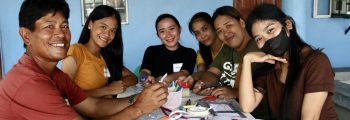
By mid-2022, it seemed obvious that VVMI’s partnership with VMN in the Philippines had ended when their “umbrella organization,” OMF, left the Manobo work. At the same time, VMN gave VVM-CMI their blessing to partner with non-Manobo churches in the southern Philippines.
Deditos new production and dubbing work continued to expand. The big Deditos news for the year, though, came from the Philippines. There, a “test” workshop for equipping lay Sunday school and daily vacation Bible school workers blossomed into multiple workshops. Within 9 months, the seminars had equipped and trained over 1000 teachers throughout the country for using Deditos. Even some Christian colleges in the Philippines decided to include Deditos as part of their formal training curriculum for children’s workers!
VVM-CMI eventually created a new partnership project with VVMI called the Deditos Children’s Discipleship Mobilization (DCDM) to more effectively carry out this ministry expansion that, perhaps for the first time ever, invested intentionally and effectively in the empowerment of lay people to disciple children in minority language areas.
—2023—
In February 2023, VVMI began a new partnership with FDPM-CO based in Colombia, South America. FDPM-CO desires to reach the 87 ethnic minority language groups in that country with vernacular Scriptures and Deditos, two focuses with which VVMI has historically assisted others.